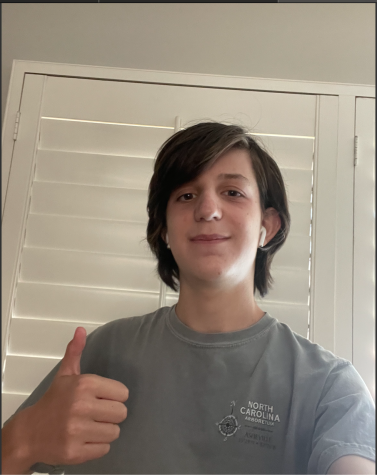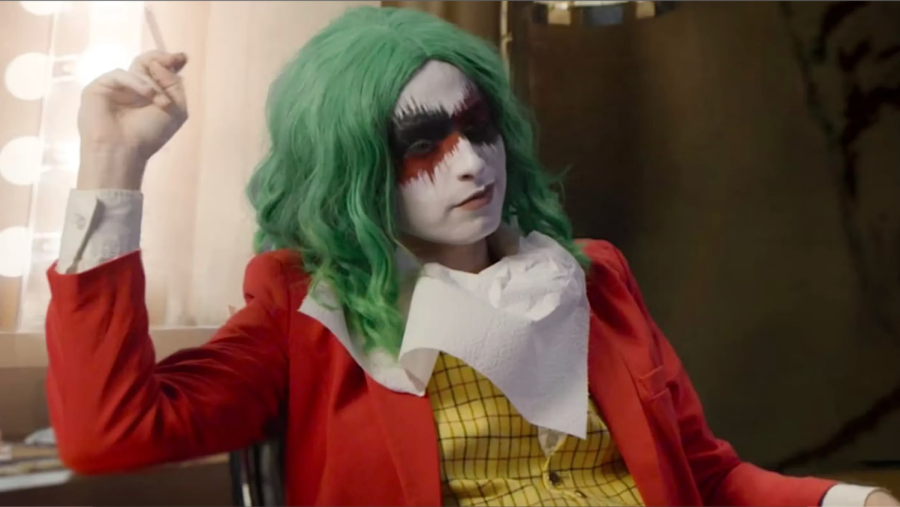Why ‘The People’s Joker’ Isn’t Being Shown To The People
Toronto International Film Festival
Vera Drew stars in ‘The People’s Joker’, which was recently pulled from the Toronto International Film Festival.
Despite garnering two separate actors’ Oscars, being crowned as the second best villain of all time by IGN, and being a character whose live-action movies have, combined, grossed over 3 billion dollars, the Joker has never gone through such a radical change as he has now. That is because the Joker is once again starring in a feature film, entitled The People’s Joker, which premiered at the Toronto International Film Festival (TIFF) in 2022.
TIFF’s Midnight Madness has entertained attendees of the festival since 1988. Midnight Madness is a special group of screenings more focused on comedy, horror, and action than the rest of the usual drama-filled lineup of the festival. And even though movies about terrible movies, people-turned-walruses, and Elvis fighting a mummy have all played during Midnight Madness, 2022 featured the first movie in Midnight Madness to ever include one of the world’s most famous comic characters.
The People’s Joker, directed by Vera Drew, is described on its website as “an illegal queer coming of age comic book movie.” The film is about a character named ‘Joker the Harlequin,’ a transgender woman and an aspiring stand-up comedian. It stars Drew, and features supporting roles from Bob Odenkirk, Sarah Sherman, Tim Heidecker, Scott Aukerman, and Robert Wuhl. The movie is a mix between new footage shot specifically for it and also “clips from Todd Phillips’ [Joker], footage of Jokers past and movies featuring clowns.” Thus, unsurprisingly, an unnamed media conglomerate (presumed to be Warner Bros. Discovery, but not confirmed) sent Drew a letter pressuring her to not screen the film.
Does The People’s Joker, which was pulled after its opening night screening, use pre-existing IP from another company? Of course it does. The Joker has been in DC Comics since before World War II, and has been trademarked since 1975. But the issue isn’t that black and white (or green and purple?). The issue is whether or not The People’s Joker falls into parody, and therefore is protected under fair-use. The difference between something deemed parody and something deemed as copyright infringement is if it is different enough that the general public can distinguish the two ‘products’. Is this true for The People’s Joker? It seems so, with people who have seen the movie calling it a “very funny movie” and a movie “that knows exactly how to maximize the comedy of its targets.” In contrast, Todd Phillip’s 2019 Joker was described as, “desperately serious” and “a sad, chaotic, slow-burn” movie. So now that it’s been established that The People’s Joker is most likely a parody, the question is no longer ‘Is the film going to be lost forever?’ It’s ‘Why even pull the movie from TIFF?’
The obvious answer would seem to be that the unnamed media company (again, probably Warner Bros) is just very protective of their characters and wouldn’t allow anyone, even a niche indie that very few people would have seen, to use their properties. But how would that explain the 2008 film Superhero Movie, which uses Batman Begins as a primary target of mockery? Or how about Invincible, whose ‘Omni-man’ (among other characters) is very clearly meant to be a Superman-esque figure escalated to the nth power? Those are only the tip of the iceberg when it comes to parodies of DC comics’ figures, and none of those have had any public legal issues. So why was The People’s Joker specifically singled out?
As previously stated, The People’s Joker is described as “an illegal queer coming of age comic book movie.” Perhaps, The operative word here is not illegal, but queer. There is a long history of media conglomerates stifling LGBTQ+ identities in their major franchises so they can make an extra buck in anti-LGBTQ+ countries. Marvel’s roster of queer characters is so bare that Buzzfeed was forced to include grieving man, and America Chavez’ moms in its list of queer Marvel characters, and several characters who are only canonically queer in the comics. The DCEU’s LGBTQ+ characters page is just six characters long, all having been confirmed as queer in Peacemaker and Birds of Prey. The formerly upcoming Batgirl film was set to include the first transgender character in a DCEU film, but the film was cancelled in August. When there are queer characters, they aren’t even particularly notable. Remember McGregor Houghton from Jungle Cruise? How about Artie from Cruella? Hollywood studios rarely let their supporting characters be openly queer, so it shouldn’t come as a surprise that a film featuring a trans Joker would be shut down.
At first glance, the quelling of The People’s Joker seems like a bad thing. But in the long term, it might prove to be the best thing for the movie. The Seth Rogen film The Interview was originally going to release in 2014 before it was threatened by the ‘Guardians of Peace’ that any cinema showing the film could be attacked. It was pulled from theaters, but after being released online, the movie became Sony’s highest grossing online release in only four days. This phenomenon is referred to as the ‘Streisand Effect,’ which is the human condition to seek out information that is kept from them. Don’t think this is going to happen to The People’s Joker? Think again, as more and more people are discovering the film. While the film had previously hit a high of 79 on Google trends, there are long stretches of very few people looking up the movie. However, the film reached ‘100’ the week the film was pulled, and Drew gained over 3,000 Twitter followers in September. If the movie manages to get through its copyright issues, The People’s Joker could end up living up to its name as a Joker movie for and by the people.

Micah Green is a senior at Milken, in his third year as a writer for The Roar. He is excited to be the Co-Editor-in-Chief and the producer for The Milken...




Benny Signer • Nov 14, 2022 at 11:19 am
This “people’s joker” seems even more “zany” than the “original” joker!